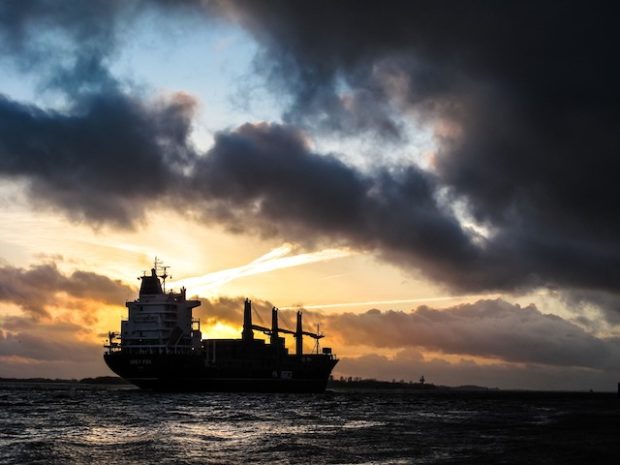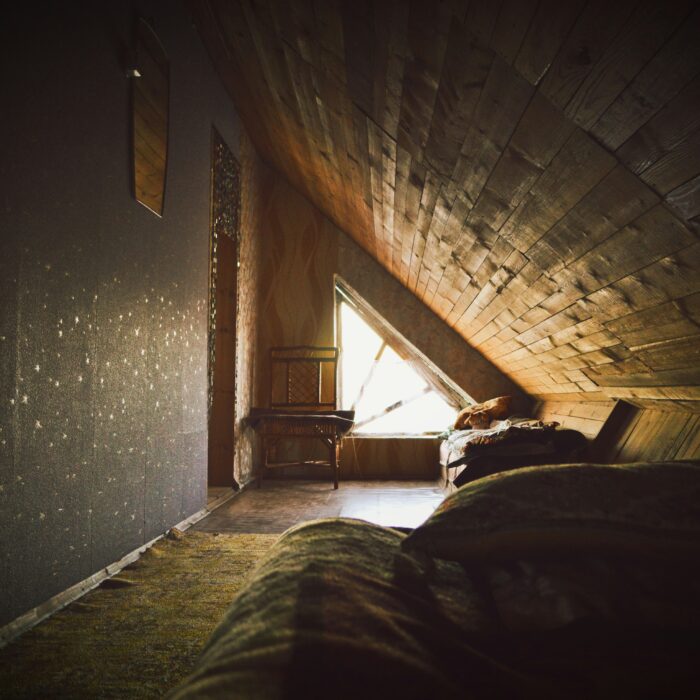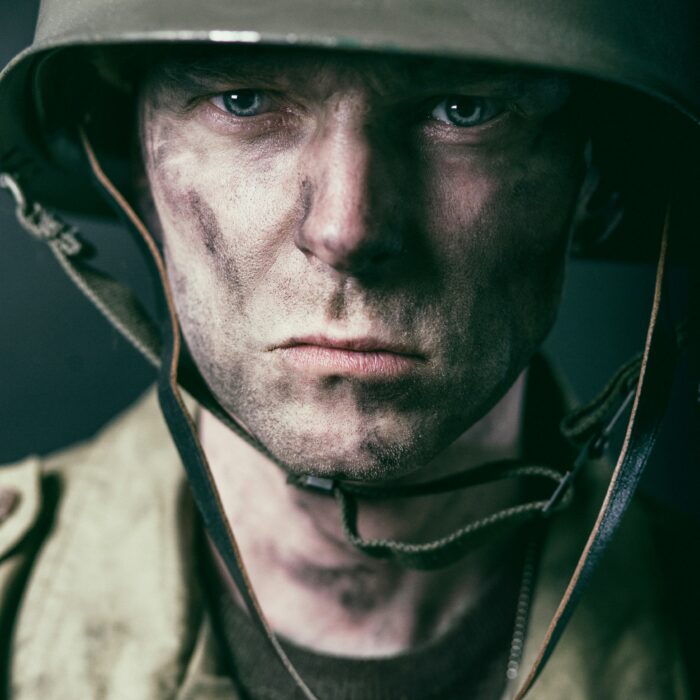You have no items in your cart. Want to get some nice things?
Go shopping
I admit, what I did was rather unusual—for others to try and understand, not that I considered it to be any of their business.
Me? No, I never doubted it, not once, despite everything that happened, how it ended, my living here; forced to be living here, and now, mercifully, having died here.
A broken man.
A fallen man.
But he wasn’t always.
And this man, he dreams; of a place; of a time, these dreams of his long prairie nights.
He stands upon the land and picks locusts from his hair and from his beard that are not there. The air tight this day with the sharp edge of prairie cold. The sky closed. He looks.
Blue and red lights. Blue and red lights.
By the road.
The long road.
The Number Two road.
Betrayed by what?
He does not know.
Men in suits, heavy coats and fur hats, faces red, their words cold in their breath before them.
Tom?
The river is there.
It’s fifteen mile yet.
He looks at the men. I walked.
You what, Tom?
He points, his hand-sewn canvas coat stiff with cold, south. Six hundred miles.
Crawling from the darkness and wanting more you stood that line, and they beat you. They beat you hard.
They’ll be no unions, not here, not on the Iron Range there won’t.
Your house on fire.
You daughter—.
Scarred for life.
All four of your children taken and placed in foster homes.
Your wife dead from influenza.
Locked away—insane.
And you were jailed.
But you found your boy, though, didn’t you, Tom?
You take him in the night. The cold Minnesota night, and you walk, six hundred miles, and at the border, they take him again.
I shall come again.
He waits. By the window. By the door.
And you do come, and together you walk six hundred miles more, the uncertainty of the journey there before you both.
They take him once again and you’re deported. You’ll be arrested if you try again.
And so you farm, south of Moose Jaw, west of the third meridian.
You look at the large willow rollers linked with heavy chain. Frozen. The white of the horse’s ribs just above the drifting snow and you put your blackened fingers to the frost of your beard and search for what is not there.
Madness.
Should’ve been off this land years ago.
He’d walk seven miles with three hundred pounds of supplies on his back.
That’s what they say.
Hell of a man.
And you remember, you made a thresher you share with your neighbors, a tricycle you peddle with your hands, a clock powered by water, special pliers to pull your teeth out, the new ones forged by you.
You look at the rollers, your fingers crawling, and you look to the river, the only river, and you point there, too, for it shall carry you away, back to the fold, back to the rhythm from which you fell so very long ago.
You build a fiddle and play in the night, the music of your dreams, of the sea and of the wind, time screaming loneliness, your children, too, pushing you on, for this man shall sail away, alone on his prairie nights.
All the world died.
The drought killing the land, the locusts coming that plague you still. Your neighbors lost their homes—lost their farms, this impractical obsession of yours growing from the dust of their broken dreams.
Some stayed.
Some left.
Others come, in trucks and by foot and riding rails, but not you, for you shall sail away.
You build your forge up and on you go, rolls of metal and rolls of steel and long sheets of iron too.
A hand upon your shoulder, a broad shoulder, and don’t you worry, Tom, we’ll take good care of her.
Your ship shall sail.
But you must have known, seen it all, in the fire of your forge, the long nights of your prairie dreams, for it was you that wrote these words: Four times there will be men who will try to raise and assemble this ship. Three times they will fail, but a fourth man will succeed. He will start the raising of my ship and it will sail across the prairies at speeds unheard of in this day and age, and will disappear in a mighty roar. My ship will go up and I shall rest in peace.
The hull: forty-three feet in length, thirteen feet wide and ten feet high.
You build the ribs first, with lapped oak planking. Tarred and chalked. Another layer of oak and over this you placed one-sixteenth of an inch sheet metal with the ends crimped and joined together.
The keel: thirty feet long and nine feet high. Double-planked, tarred and chalked and overlaid with sheets of galvanized iron laced together with unbroken lines of steel wire.
And who builds a ship like that?
On the prairie?
To do what?
Go where?
How?
Why?
This man is insane.
A wheelhouse and sleeping quarters, eight feet high, varnished, with four-foot railings.
The boiler you build by the river, heated and rolled, five-eighths thick steel on a press you made yourself that many today marvel at and wonder how.
The fiddle you made pushing you on through the long nights of your prairie dreams.
Tom?
There you are, a man alone, painting the ship of your dreams with the blood of your horse.
And you ate that horse.
All the instruments made by you: propeller, chains, pulleys, cylinders, bilge pump—a lifeboat too.
A cold prairie wind.
You look at the men putting their hands to their hats, their words drifting before you.
Your money is gone, and you fix things for food, when the people can pay.
A man forged by his dreams scavenging for food, a wild prairie man, and you’re ready to move it all to the river, seven years in the making.
You ask a neighbor to borrow their tractor.
His neighbor, too.
Doors shut on your face.
A crazy man.
Go away.
No.
Insanity.
And so it was, just you and your horse and a handmade pole-winch, one rotation, twenty feet, and that’s what you did, what it took.
Two years, two miles.
Fifteen miles to go.
My God, would you look at that hull. It must be what? Ten feet?
If it’s a foot.
And the river draws what?
Eight.
More like six.
Such a waste.
All that money.
In the spring of ’43 the drought ends, the river floods, and who’s to say what a man can do?
They found your maps of chartered waters, pages of calculations, all made by you in a rowboat made by you.
Tom?
You look at the men and sees the lights.
Blue and red lights. Blue and red lights.
It’s time to go.
By the road.
It’s getting dark.
The long road.
It’s for your own good.
The Number Two road.
You’ll be fine, you’ll see.
The snow breaks beneath your feet and you point, south. Six hundred miles.
And what I’d like to know, Tom, is can you hear the fiddle still, in these dreams now of your long prairie nights?
Tomi Jannus Alankola, ‘Tom Sukanen’, was born in Kurjenkya, Finland, September 23, 1878. He was institutionalized in North Battleford, Saskatchewan, 1939, where he died, April 23, 1943. His ship, the Sontianen, still stands today.
Christian Fennell
Having recently completed his first novel, The Fiddler in the Night, long-listed for the 2018 Dzanc Book Prize for Fiction, Christian is currently working on a collection of short stories and a second novel, The Monkey King. His short stories have appeared in a number of literary magazines and collected works, including: Wilderness House Literary Review, Spark: A Creative Anthology, Liars' League London, .Cent Magazine and Kingston University of London: Words, Pauses, Noises, among others. His short story, 'Under the Midnight Sun', was an Eric Hoffer Award, 2015 Best New Writing, finalist. Christian was a columnist and the Fiction Editor at the Prague Revue. He resides in rural Ontario.




